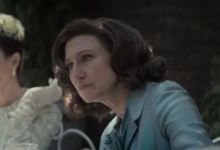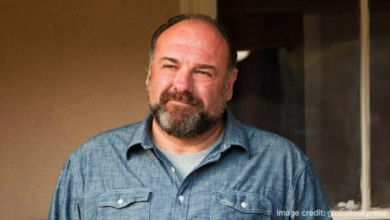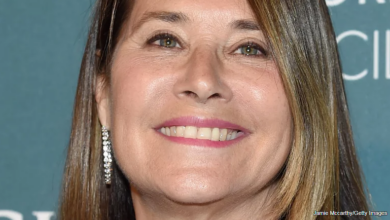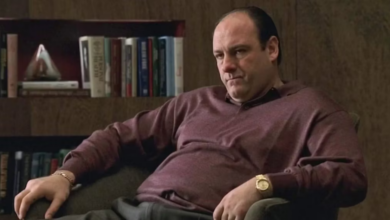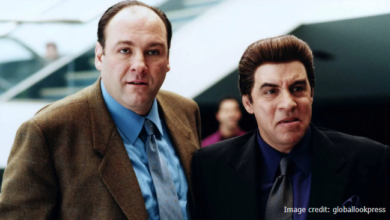Was Tony Sirico one of the best comedic presences of our time?
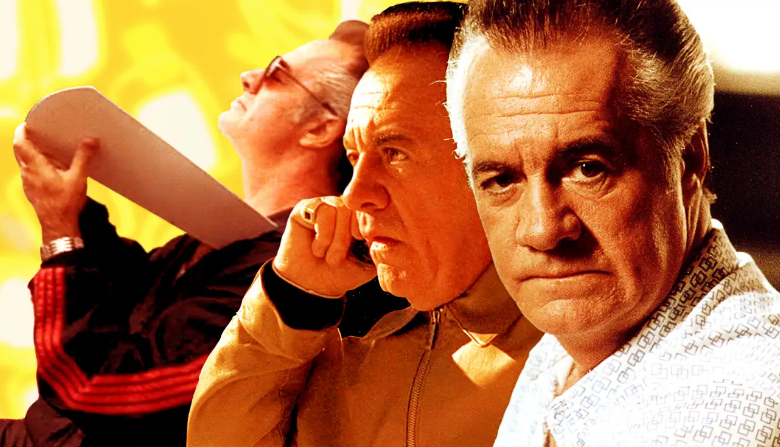
In The Sopranos, which turned 25 this month, his character Paulie Walnuts was at the center of too many indelibly funny moments to count
Just don’t call him a bully.
According to David Chase, the only time an actor ever convinced him to change a line of dialogue on The Sopranos was when Tony Sirico, deeply resentful that his character, Paulie, a mob captain and stone-cold killer, would be characterized as such. Reddit rabbit holes are stuffed with such favorite Sirico stories, rumors, legends, near-fables. He claimed he would refuse to play his part if Paulie ever turned rat. Upon first meeting new writer Terence Winter, Sirico told him, if he was killed off, “First I die, then you die.” Sirico wouldn’t let anyone do his hair, often waking in the middle of the night to wing-and-sculpt himself at home before he came to set. Famous was his preference for copious cologne, and for Binaca, but not just for his own body or mouth—whoever he might be sharing lines with might be given a spray too, to “blow the stink off.” While filming “Pine Barrens” in West Point he sent a PA two hours back to Brooklyn to fetch his preferred pillows. Thinking a celebrity such as himself could be a target during the post-9/11 anthrax scare, he began to microwave all his mail, figuring this would kill any chemical agents. Back in the day, he used to give wedgies to Jimi Hendrix while bouncing at the Cafe Wha? But, hey, “remember when” is the lowest form of conversation.
The Brooklyn native, who passed in 2022 at the age of 79, and whose arc included a stint in the army and some time in “college”—a 20-month stay at Sing Sing for extortion and weapons possession—made his acting debut in 1974 with Crazy Joe before getting a spot as an uncredited extra in Godfather Part II, then bit but memorable roles in Goodfellas and some Woody Allen films. A consummate mean-mugged mafioso, it was his star-making turn in The Sopranos where he became a favorite “uncle,” a cantankerous and loyal and ever-cackling and bizarrely peculiar strongman just as likely to chaperone Anthony Jr. to a school dance on the show as to act as real life bodyguard for Robert Iler—according to Iler himself. He personified the goofy but noble gabagool-head, as cuddly as psychotic, as macho and finger-wagging as he might be moved near tears by Frank Sinatra or his tenderness for his “mother.” With the air of both a good hang and a cocksure assassin, for those of us living primarily inside the lines and inside our heads, he was the embodiment of the no-fucks allure of outlaw-dom. In an episode of their podcast Talking Sopranos, Michael Imperioli and Steve Schirripa pondered which Sopranos actor was most like their character. With knowing laughs, neither had any doubt: It was Tony Sirico.
It might beg the question: How much of this is acting? And are we, in part, laughing at Paulie? At Tony Sirico?
There is a scene early in “Pine Barrens,” probably the best moment of his acting career and one of the best episodes of the series, where he takes a call from Tony while getting a manicure. There is a certain wrist flick before his phone rings, an airy and graceful hand flair, as he states, “Let’s go with the satin finish.” This is a character being told to go and collect thousands of dollars from an intimidating Russian, who will do so with an aggressive rap on the door and racial insults at once shot from the hip (“better not be any rubles in there”). But first he had to get those cuticles on point. Somehow this is a man who seems equally himself in both worlds.
In such moments it might be hard to tell if he was, as Chase thought, oblivious to the humor inherent in his lines and delivery. Or rather if he was simply one of the best comedic presences of our time. Like the tough and wayward black-sheep cousin of Leslie Nielsen, he somehow mixes the commanding goofster presence of a Charles Durning with a serious swagger and completely timeless cut of jib. He could easily be the guy behind the guy in your grandma’s favorite black-and-white movie.
But, whaddaya hear whaddaya say!? Check the tape and Sirico’s greatest hits are deeper and better than anyone’s in the show. “Oof, marone! He looks terrible!” he proclaims, annoying and egging Tony literally toward death while the boss lays in a coma, with tales of three times claiming the “chin-ups cup” championship. And who else could tell his Paris joke? “I went over for a blow job; your mother was working the bonbon concession at the Eiffel Tower.” So good, it needs to be repeated. “Did ya hear what I told him?” There is his frustrated inability to connect with his ideal of Italy, even despite his reverent use of “commendatori.” He speaks powerfully at Christopher’s intervention (“You’re weak. You’re outta control. And you’ve become an embarrassment to yourself and everybody else.”) before giving the addict his knuckle rehab.
There are many such indelible moments sprinkled throughout the whole series: from foil tanning in front of Satriale’s to hands in the air resignation to the steely death stare for his former friend, Big Pussy, to the wistfulness of hearing “Nancy” as he’s back from “college” to murdering his mom’s friend for mattress cash to murdering a waiter over a tip beef or anything abound his tough love relationship with Christopher. Also, don’t forget his capacity for sage advice. To Tony B, working for a Korean, he cautioned, “Word to the wise: Remember Pearl Harbor.”
By season six, Chase, maybe seeing Sirico grow as an actor, entrusted him with a storyline of existential darkness—discovering the truth that his supposed mother is actually his aunt. From furious to distracted and broken and back to furious again, in his TV-chucking rage he still slips in a bit of malapropism: “Sharper’s Image.” It’s an extension over the hurt he shows in season two with a psychic (“satanic black magic, sick shit”)—it all ending with him throwing a chair at his ghosts (“fucking queers!”). It’s a glimpse at the tortured underbelly of a little kid dressed as a wise guy. The real conscience cost of operating in this world, Paulie is finally so vulnerable his sacred wings are fully mussed.
Throughout there is that mug—and how else to better describe such amplified and drawn out features?—perpetually perplexed, befuddled, offended, ever at odds with society’s confounded push and pulls, the volatile volleying eyebrows exaggerated like a 1960s New Yorker cartoon. Really his aesthetic trademarks are too numerous to count: the gray wings, the scowl, the frown, the forefinger-and-pinky point, the plastic on the furniture, the track suits, the fancy lapeled suits, the Cadillac with the Godfather theme horn, tree stump forearms and roaring chest hair and chains, the hands perpetually placed in front of him—a prison thing, always ready to defend himself. Though his two greatest traits remain next to impossible to describe: his offended “Ohhhhhhh!” deep, guttural, instinctive, fired the second anyone steps over that invisible line of mafia righteousness. And then there is the “hehehehe”—a mouthy cackle, cutting and abrasive, as annoying a sound as your neighbor’s backfiring motorcycle that you know they just love to tinker with.
Consider his stint in Goodfellas, as Tony Stacks, the ultimate shadow-boxing ball-buster of big finned autos and even bigger entrances, again, maybe playing himself, putting a mailman’s head in a pizza oven. He really goes from rags to riches, as a scenester, in Bullets Over Broadway, the pinnacle of a long and unlikely friendship with Woody Allen. Stalking onscreen with pinstripes and shotgun, he brings that slow shouldery swagger to Capone-era gangsterdom, declaring “done” with a lean forward and definitive chopped wave of the hand.
